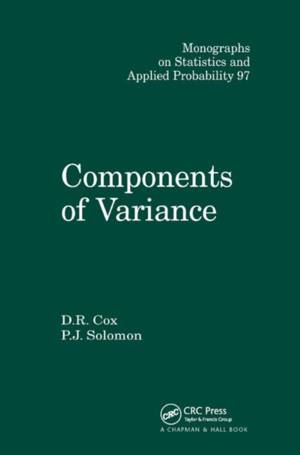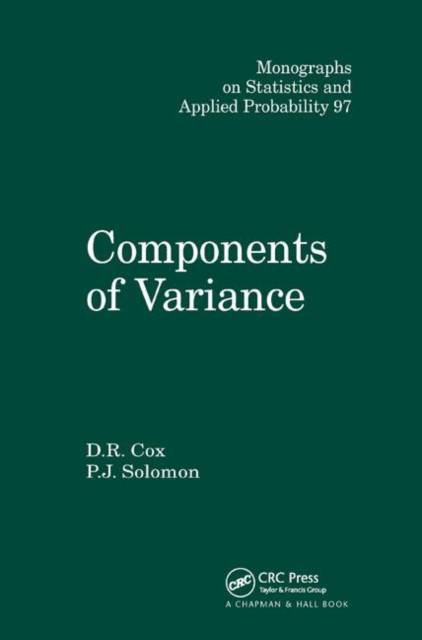
- Retrait gratuit dans votre magasin Club
- 7.000.000 titres dans notre catalogue
- Payer en toute sécurité
- Toujours un magasin près de chez vous
- Retrait gratuit dans votre magasin Club
- 7.000.0000 titres dans notre catalogue
- Payer en toute sécurité
- Toujours un magasin près de chez vous
Description
Identifying the sources and measuring the impact of haphazard variations are important in any number of research applications, from clinical trials and genetics to industrial design and psychometric testing. Only in very simple situations can such variations be represented effectively by independent, identically distributed random variables or by random sampling from a hypothetical infinite population. Components of Variance illuminates the complexities of the subject, setting forth its principles with focus on both the development of models for detailed analyses and the statistical techniques themselves. The authors first consider balanced and unbalanced situations, then move to the treatment of non-normal data, beginning with the Poisson and binomial models and followed by extensions to survival data and more general situations. In the final chapter, they discuss ways of extending and assessing various models, including the study of exceedances, the use of nonlinear representations, the study of transformations of the response variable, and the detailed examination of the distributional form of the underlying random variables. Careful signposting and numerous examples from genetic data analysis, clinical trial design, longitudinal data analysis, industrial design, and meta-analysis make this book accessible - and valuable - not only to statisticians but to all applied research scientists who use statistical methods.
Spécifications
Parties prenantes
- Auteur(s) :
- Editeur:
Contenu
- Nombre de pages :
- 184
- Langue:
- Anglais
- Collection :
Caractéristiques
- EAN:
- 9780367395971
- Date de parution :
- 05-09-19
- Format:
- Livre broché
- Format numérique:
- Trade paperback (VS)
- Dimensions :
- 150 mm x 226 mm
- Poids :
- 113 g

Les avis
Nous publions uniquement les avis qui respectent les conditions requises. Consultez nos conditions pour les avis.






